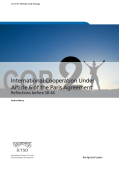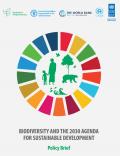
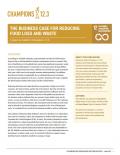
According to available estimates, approximately one-third of all food produced in the world intended for human consumption is lost or wasted. This level of inefficiency in the global food system has significant economic, social, and environmental impacts. It amounts to economic losses of $940 billion per year. It means that more than a billion tonnes of food never gets consumed each year, while one in nine people remains undernourished. In addition, food loss and waste are responsible for an estimated 8 percent of annual greenhouse gas emissions; if it were a country, food loss and waste would be the third-largest emitter after China and the United States.
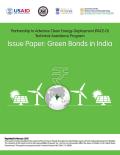
The government of India aims to dramatically increase the amount of installed renewable energy and is currently focused on arranging and facilitating the needed capital investment to achieve targets. In India there are fundamental challenges for renewable energy developers in the financial marketplace such as asset-liability mismatch, high interest rates and sector limits. Green Bonds are standard, fixed-income financial instruments (bonds) where the proceeds are exclusively utilized for financing climate change mitigation or adaptation related projects or programs.This report provides information on the use of Green Bonds as a key financial instrument to provide Indian renewable energy project developers access to scalable, long-term, low-cost debt capital from institutional investors. This report was prepared through the Partnership to Advance Clean Energy-Deployment (PACE-D) Technical Assistant (TA) Program which is funded by USAID.
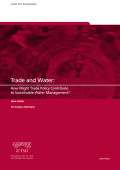
Water is at the centre of economic and social development: it is vital to maintain health, generate energy and create jobs while sustaining the natural environment. A wide variety of economic, social and environmental services are derived from water resources, ranging from water supply and hydropower generation to navigation and recreation. Water resources are also an integral part of the natural environment, supporting biodiversity as well as underpinning the agriculture which provides the world’s food. This paper identifies some of the key intersections between trade policy and water management, in areas such as agriculture, hydropower generation, water services and wastewater management. While the local nature of water systems and the diversity of water management objectives is not conducive to the application of trade instruments to enforce a prescriptive, one-size-fits-all, approach to water management, the paper identifies a range of areas in which trade policy could support the sustainable management of water.
